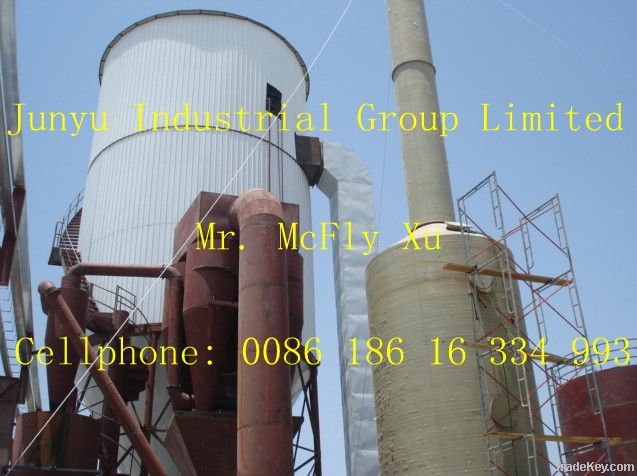

Precio FOB
Obtener el precio más reciente|
1 Set Minimum Order
País:
China
N º de Modelo:
JY
Precio FOB:
Lugar de origen:
China
Precio de pedido mínimo:
-
Cantidad de pedido mínimo:
1 Set
Detalle de embalaje:
container
El tiempo de entrega:
30 days
Capacidad de suministro:
-
Tipo de pago:
Western Union, D/P, D/A, L/C, T/T
Grupo de productos :
Persona de contacto Mr. McFly
room#2708, #161 East Lujiazui Rd, Pudong District, Shanghai, China, Shanghai, Shanghai
Spray drying is a method of producing a dry powder from a liquid or slurry by rapidly drying with a hot gas. This is the preferred method of drying of many thermally-sensitive materials such as foods and pharmaceuticals. A consistent particle size distribution is a reason for spray drying some industrial products such as catalysts. Air is the heated drying medium; however, if the liquid is a flammable solvent such as ethanol or the product is oxygen-sensitive then nitrogen is used.
All spray dryers use some type of atomizer or spray nozzle to disperse the liquid or slurry into a controlled drop size spray. The most common of these are rotary disks and single-fluid high pressure swirl nozzles. Alternatively, for some applications two-fluid or ultrasonic nozzles are used. Depending on the process needs, drop sizes from *0 to **0 µm can be achieved with the appropriate choices. The most common applications are in the **0 to **0 µm diameter range. The dry powder is often free-flowing.
The most common spray dryers are called single effect as there is only one drying air on the top of the drying chamber (see n°4 on the scheme). In most cases the air is blown in co-current of the sprayed liquid. The powders obtained with such type of dryers are fine with a lot of dusts and a poor flowability. In order to reduce the dusts and increase the flowability of the powders, there is since over *0 years a new generation of spray dryers called multiple effect spray dryers. Instead of drying the liquid in one stage, the drying is done through two steps: one at the top (as per single effect) and one or an integrated static bed at the bottom of the chamber. The integration of this fluidized bed allows, by fluidizing the powder inside a humid atmosphere, to agglomerate the fine particles and to obtain granules having commonly a medium particle size within a range of **0 to **0 µm. Because of this large particle size, these powders are free-flowing.
The fine powders generated by the first stage drying can be recycled in continuous flow either at the top of the chamber (around the sprayed liquid) or at the bottom inside the integrated fluidized bed. The drying of the powder can be finalized on an external vibrating fluidized bed.
The hot drying gas can be passed as a co-current or counter-current flow to the atomiser direction. The co-current flow enables the particles to have a lower residence time within the system and the particle separator (typically a cyclone device) operates more efficiently. The counter-current flow method enables a greater residence time of the particles in the chamber and usually is paired with a fluidized bed system.
| País: | China |
| N º de Modelo: | JY |
| Precio FOB: | Obtener el precio más reciente |
| Lugar de origen: | China |
| Precio de pedido mínimo: | - |
| Cantidad de pedido mínimo: | 1 Set |
| Detalle de embalaje: | container |
| El tiempo de entrega: | 30 days |
| Capacidad de suministro: | - |
| Tipo de pago: | Western Union, D/P, D/A, L/C, T/T |
| Grupo de productos : | chemical production line |